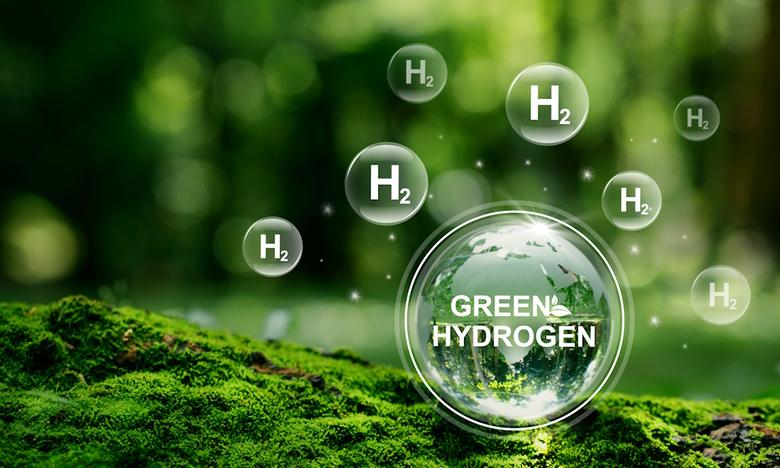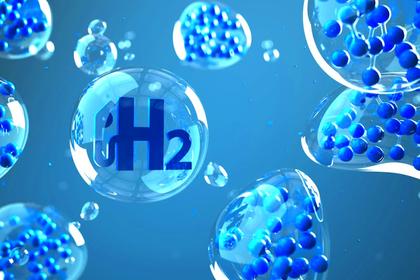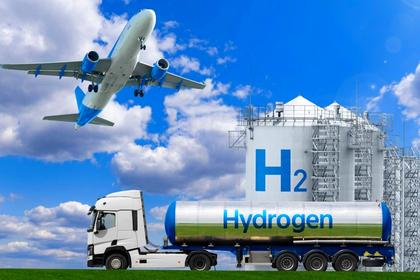
GLOBAL HYDROGEN BUBBLE DOWN

By PAUL MCCORMACK Innovation Manager, Belfast Met
ENERGYCENTRAL- Mar 28, 2024 - Over the years we have witnessed many 'market bubbles' - the South Seas bubble (1720), the tulip bubble (1634-1637), the railways bubble (1840’s), the dotcom bubble (1990’s), the US housing bubble (early 2000's) the biofuels bubble, the crypto bubbles (2011, 2014, 2018) and many more litter our economic history.
The definition of a bubble – an accelerated economic cycle, characterized by the rapid escalation of market value, particularly in the price of assets. This fast inflation is followed by a quick decrease in value, or a contraction, that is sometimes referred to as a "crash" or a "bubble burst." There might be a few new big businesses created; others will do vast write-downs; everyone who needs to, will cycle into the new technology in the normal course of business; and the rest is a huge shoulder-shrug and stuff people try to lose from their resumes. Sounds familiar?
There are 5 stages in the bubble cycle Displacement, Boom, Euphoria, Profit-Taking and Panic. In early 2023 it was thought by many that hydrogen was the panacea for all our energy needs and the answer to the climate crisis. Rising euphoria driven by the hydrogen gas rush was threatening to overcook the market and lead to a hydrogen bubble. There was a real danger of the hydrogen energy rush driving the hydrogen economy too fast into the boom stage and 'tipping over' into becoming a hydrogen bubble and following the failed pathway of the other bubbles highlighted above. However, in the last 6 months we have witnessed several things happening which in combination have resulted in a reality check setting into the market. Large electrolyser projects are not achieving the very optimistic goals and headlines, technology development is not achieving predicted scale, projects are finding it difficult to maintain the rapid deployment pathways specified, delayed government legislation and permitting is slowing the speed of anticipation, funders are rowing back on early announcements.
All of these effects are acting as a braking mechanism, bringing a reality check to the economy and allowing accurate market dynamics to play out. It is taking the heat out of the equation and as a result more realistic market development pathways are now being discussed and developed. This is a welcome awareness and checkpoint in the developing hydrogen economy. To date too much development was driven by an unrealistic euphoria where shareholder returns were given more space than actual project reality checks. Yes, the hydrogen market has experienced significant growth and investment interest, particularly in sectors such as renewable energy, transportation, and industrial processes. However, we had reached a position where the hydrogen market's valuation was becoming disconnected from its underlying fundamentals, often driven by speculative behaviour rather than genuine demand and technological advancements. Fundamental market economics were being overtaken by hype, speculation, and the fear of missing out, rather than rational assessment of market conditions and need. Market bubbles can be difficult to identify in real-time, and opinions may vary among analysts and experts. Evaluating the hydrogen market's current state requires us all to examine factors such as investment trends, technological advancements, policy support, market demand, realistic time bound need and opportunity.
A market reality check involves assessing current market conditions and determining whether the valuations and expectations align with the actual fundamentals of the market.
The hydrogen market is now transitioning from a speculative investment area to a sector with tangible commercial applications and real-world implementations. This shift is driven by technological advancements in hydrogen production, storage, and utilization technologies which have made hydrogen more viable as a clean energy carrier. This includes innovations in electrolysis, fuel cells, and hydrogen storage solutions, which have improved efficiency and reduced costs. The market has experienced a fundamental shift from a position of investor driven hype to one where actual market conditions are being used to determine valuations and expectations.
Updated government support and policies worldwide are implementing policies and incentives to support the development and deployment of hydrogen technologies. This includes funding for research and development, subsidies for hydrogen projects, tax incentives, and regulatory frameworks to promote hydrogen adoption. Major industries, including automotive, energy, and manufacturing, are increasingly investing in hydrogen technologies as part of their sustainability strategies. This includes the development of hydrogen fuel cell vehicles, integration of hydrogen into industrial processes, and investment in hydrogen infrastructure. Worldwide awareness and international cooperation is leading to increased collaboration among countries and regions to accelerate the adoption of hydrogen as a clean energy solution. Initiatives such as the US Inflation Reduction Act, the REPowerEU plans, the Hydrogen Council and international agreements on hydrogen cooperation aim to facilitate knowledge sharing, technology transfer, and market development.
Our clean energy future is a shared objective with no borders or boundaries. Green hydrogen’s has significant potential as a driver of needed sustainable energy, economic development, and community stability. Green hydrogen has gained substantial momentum over the last decade because of its immense potential in decarbonising the global energy, transportation, and industrial sectors. To fully realize the potential of both the Paris Agreement and social development goals, it is imperative to ensure that sustainable development and climate action go hand in hand, and a green hydrogen economy is developed to benefit communities.
We are now witnessing the hydrogen market evolving from a speculative concept and maturing to become a tangible reality with diverse applications across various sectors. While challenges remain, such as scaling up production, reducing costs, and addressing infrastructure needs, the momentum behind hydrogen has changed from the initial rush to a sustained realistic momentum. Hydrogen is becoming an increasingly important component of the global energy transition and a key clean energy vector that will play a significant role in the transition to a sustainable energy future. There is a growing consensus, a Hydrogen reality check – we need hydrogen but not for everything – it is no a case of hydrogen at all costs.
-----
This thought leadership article was originally shared with Energy Central's Energy Collective Group. The communities are a place where professionals in the power industry can share, learn and connect in a collaborative environment. Join the Energy Collective Group today and learn from others who work in the industry.
-----
Earlier:



















